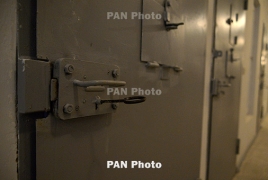
President Vahagn Khachaturyan's refusal to grant clemency to 18 convicted individuals has sparked concern among human rights advocates, who are calling for greater transparency in the pardon process.
During a discussion titled "Why does the president say 'no': 18 pardon requests denied," Ani Chatinyan, coordinator of the legal department at the Helsinki Citizens' Assembly Vanadzor Office, emphasized the necessity for individuals to understand the legal and factual grounds for decisions affecting them. She asserted that this principle should apply not only to rejections but also to approvals of petitions.
Chatinyan highlighted the significant role victims' opinions play in the pardon process, noting that this often presents a major obstacle, as many victims oppose granting clemency. However, she argued that a victim's stance should not determine a convict's right to reintegration, stating, "Even those serving life sentences should have a real opportunity to return to society."
Zhanna Aleksanyan, head of the Journalists for Human Rights NGO, pointed out that evaluations from penitentiary institutions and probation services heavily influence pardon decisions. She questioned the basis for the blanket rejection, asking whether any of the 18 inmates received positive assessments. Aleksanyan criticized the decision as politically motivated and lacking compassion, especially considering inmates' efforts to rehabilitate through participation in programs and activities.
She also recalled a case where three victims expressed forgiveness towards a convicted murderer, yet the state still denied the pardon request.
Nina Karapetyants, head of the Helsinki Association NGO, expressed doubt that the president's office thoroughly reviewed the content of the petitions, suggesting that the rejections were made without due consideration. She stressed the importance of individuals understanding the criteria for status changes, asserting that even those imprisoned for 20-25 years should be given a chance for reintegration. Karapetyants argued that such decisions should be the responsibility of the state, not left to the discretion of victims.
She further criticized the reluctance of institutions to assume responsibility, noting that the prosecutorial system remains entrenched in outdated Soviet-era thinking.
Karapetyants also pointed out that many of the convicts were sentenced in the 1990s, a period when the justice system was flawed, and case materials were often inadequately preserved.

